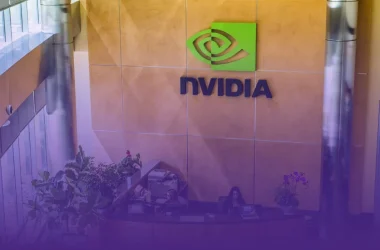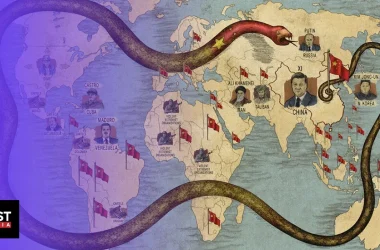In November, South Korea announced a temporary ban on stock short-selling that will last until June 2024.
According to the country’s government, the decision was made with the intention of giving financial regulators the time to enhance existing rules and systems, in order to create a “level playing field” for investors.
But this isn’t a new, revolutionary policy. In fact, South Korea has banned stock short-selling multiple times before.
However, the timing of the decision has led many to think that there’s an underlying political motive behind it, especially since the move was extremely welcomed by retail investors in the country. Why did South Korea ban stock short-selling exactly? And why at this time?
The Ban
South Korea is the country with the fourth largest economy in Asia, recording a GDP of $1665.25 billion in 2022, which accounts for 0.72% of the global economy.
In the past few years, South Korea has become known for its dynamic financial markets and lively economy. Recently, the country made headlines for deciding to ban stock-short selling until June of 2024, saying that it discovered massive illegal use of the trading tactic by global investment banks.
Earlier in the year, financial regulators in South Korea fined five foreign firms for illegal short-selling. In October, the Financial Supervisory Service said that it would fine two Hong Kong-based investment banks that engaged in illegal stock short-selling transactions worth 56 billion Korean won between the two banks.
It was revealed later in December that these two banks were HSBC Holdings PLC (NYSE: HSBC) and BNP Paribas (OTCQX: BNPQY), and they were hit with a fine of 26.5 billion Korean won, or $20.4 million, by the South Korean government for illegal stock short-selling.
In particular, South Korea ordered BNP Paribas to pay 11 billion won and its local brokerage unit to pay 8 billion won. On the other hand, HSBC was fined 7.5 billion won.
According to South Korea’s Securities and Futures Commission, the violations committed by these banks were a grave matter that hurt the market order and investor trust, and the activities that were carried out by BNP Paribas, its local brokerage unit, and HSBC were done intentionally even though it was common knowledge that they were illegal.
The commission is also intent on asking prosecutors to investigate the two international investment banks.
Apart from this, recently, South Korea’s Financial Services Commission (FSC) hit a combined fine of 2 billion won on three unnamed international hedge funds for violations of capital markets law and a penalty of 3.9 billion won on Erste Asset Management earlier this year.
What Is Stock Short-Selling?
Stock short-selling is a trading strategy that involves borrowing and selling shares of the stock that the trader expects to drop in price, in order to speculate or hedge against the risk of a long position in the same security or a related one.
However, this strategy still has risks to it. For instance, if the investor or trader bought a stock because they expected it to decrease in value, they could lose money if the stock’s price kept increasing.
Naked Short-Selling
After the ban was reimposed, the Korea Composite Stock Price Index or KOSPI rose as much as 4% as the Korean authorities vowed to investigate and stop the illegal use of the trading strategy that is deployed regularly by institutional and foreign investors.
By using the term “illegal use,” the Korean authorities are referring to the action of “naked short-selling,” which is basically short-selling the shares without actually borrowing them, an act that is illegal in South Korea.
Many companies’ stocks also saw an increase after the decision was announced, such as LG Energy Solution with a more than 20% jump and Posco Future M, a battery materials company, up by 28%. The technology-focused Kosdaq index also rose as much as 6%.
The ban came with much friendlier regulations for the retail investors in the country, who have complained before about the worsened price swings caused by institutional and foreign investors betting on the market declining.
The FSC stated that it would lower the ratio of cash required as collateral for retail investors to borrow stocks to 105 percent, down from the current 120 percent, to match the ratio for institutional investors.
Additionally, a new cap of a maximum of 90 days will be imposed on institutional investors who want to borrow stocks for short selling, just like retail investors.
Naturally, retail investors welcomed the ban. On the other hand, institutional and foreign investors saw the ban as a way to deny investors options to hedge their risks, and the market became less attractive to them.
Why Now?
It’s important to note that South Korea had previously banned stock short-selling multiple times before. To give a few examples, the country announced a temporary ban on the trading tactic during the 2008 global financial crisis, the 2009 Eurozone debt crisis, the 2011 U.S. sovereign downgrade, and most recently, in 2020 during the Covid-19 pandemic.
So, why is it so different now that the Korean government is being accused of putting out populist economic policies?
When you consider each of the examples given before, South Korea bans stock short-selling whenever an economic crisis happens. However, South Korea’s economy is currently doing well.
Evidently, since the beginning of the year, South Korea’s economy has grown for three consecutive quarters, with both the second and third quarters witnessing a GDP growth of 0.6%.
So, this is a different situation from all the previous bans. In fact, the approaching general election, which is set to be held next year, has led many to believe that the decision is more politically driven this time, in order to show the South Korean people that the government is against illegal financial activities and isn’t willing to compromise on that part.
In addition to that, retail investors, who favored the ban, have become a key voting group in recent years. This is shown in the increasing number of retail stock trading accounts, which has roughly doubled since 2017 to about 14 million, with about one in every five Koreans having an account.
The number of retail investors in the country reached 14.2 million in December, up from 13.7 million a year ago and accounting for 27.5% of the country’s 51.6 million people. They also owned 56.1 billion shares in 2,500 stocks, half of the total shares in the market, according to data from Korea Securities Depository.
Not only that but there’s also the fact that more than 50,000 Koreans have signed a petition for a temporary short-selling ban in recent months.
The Ban’s Implications
Even though the stock short-selling ban is supposed to end in June of 2024, it’s questionable if short-selling will resume even after that date. The South Korean government didn’t rule out extending the duration of the ban, and made it clear that it might extend the ban if reform measures are deemed insufficient to stop the illegal activities.
This raised multiple alarm bells for foreign and institutional investors in the country, since the ban already comes at a sensitive time at which South Korea is aiming to join MSCI’s developed market indexes, which ask members to adopt short-selling. Therefore, extending the ban even more would hurt the country’s chances at joining the indexes.
South Korea wants to join the index to promote itself from an emerging market to a developed market in its next annual market classification review, in order to join the only three Asian countries in the indexes, which are Japan, Hong Kong and Singapore.
This is just one aspect of why the ban is significant, but there’s also the fact that most short sellers in South Korea are foreign investors deploying the so-called “long-short” strategies. To them, the ban will make the market less transparent and less efficient by reducing liquidity.
Critics of the ban say that these foreign investors may have to reduce the amount of Korean stocks in their portfolios if they aren’t able to place bearish bets as a way of hedging against price risks, which would harm South Korea’s foreign investment inflows.
In other words, the stock short-selling ban is possibly good for short-term gains, but the economy will most likely need more than that to improve for the long term.
In conclusion, we can say that while the move is favored by domestic investors, the South Korean government should also consider what would happen if foreign and institutional investors became completely discouraged from the South Korean stock market, especially right now since many of the world’s economies are open and welcoming foreign investors.
Disclaimer
Please visit and read our disclaimer here.









